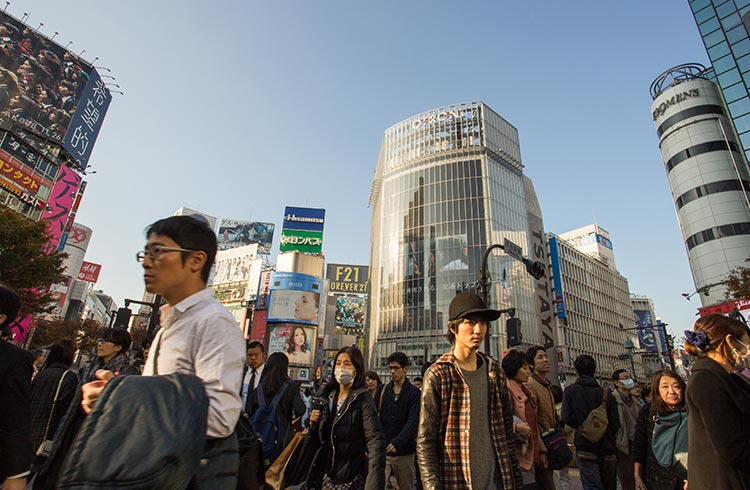What Travelers Need to Know About Drug Laws in Japan
From drug laws and drug use, to which medications you can and can't bring into the country, here's how to avoid trouble with Japanese law.
 Photo © Jason Ortego on Unsplash
Photo © Jason Ortego on Unsplash
Many Asian countries are famous for having harsh drug laws, and Japan is no different. This is not a country to get high while traveling.
- How harsh are Japan's drug laws?
- How common is illegal drug use in Japan?
- Why is methamphetamine the number one drug in Japan?
- How many people get arrested for drugs in Japan?
- Which prescription drugs are restricted in Japan?
How harsh are Japan's drug laws?
Japan’s drug laws are very strict, although not as strict as fellow Asian nations such as Indonesia, Singapore, Malaysia and China, where drug offenders can be executed. Japan is not one of the 35 countries that have the death penalty for drug offenses – instead, the maximum punishment is life imprisonment.
What Japan does have, however, is minimal tolerance for low-level drug possession. For example, while a lot of Western countries have now legalized or decriminalized marijuana, it is illegal in Japan. Until recently, possession or sale was criminalized, but cannabis use was not. However, in December 2024 a new law went into effect designating the substance as a narcotic, and raising the maximum jail term for sale, recreational use, or possession to seven years. Using or possessing methamphetamine or heroin carries a potential 10-year prison sentence, while for MDMA, cocaine, or magic mushrooms the punishment is seven years imprisonment.
Japan also has a penalty of up to one-year imprisonment and/or a USD $4,000 fine for possession of solvents such as paint thinner. That’s because, rather surprisingly, inhaling solvent fumes is the third most common form of illicit drug use in Japan, after methamphetamine and marijuana.
Unlike most Western countries, Japan’s drug laws do not make a distinction between drug possession for personal use or for intent to supply. The most severe drug penalty – life imprisonment - is reserved for the production, exportation or importation of amphetamines or heroin with intent to supply.
How common is illegal drug use in Japan?
Japan’s tough laws have limited, but far from eradicated, recreational drug use in Japan. Of the country’s 125 million people, close to 3% have used illegal drugs in their lives, according to a 2020 study by Keio University and the Japan Advocacy Network for Drug Policy.
That, then, amounts to more than three million people, which at first sounds like a big number. It is a miniscule proportion, however, when compared with countries such as the US, Canada, UK and Australia, the latter of which found in a 2022-2023 study that more than 47% of its population had used drugs at some point.
In Australia, as with many Western countries, cannabis is easily the most commonly consumed “restricted” drug. It was used by almost three times more Australians than the second-most popular restricted drug (cocaine), according to that study. Whereas in Japan, methamphetamine is comfortably the number one illicit substance. The aforementioned Japanese research found more than 70% of drug arrests in Japan involved methamphetamine – but cannabis use is on the rise.
Why is methamphetamine the number one drug in Japan?
While cannabis is king in most Western countries, methamphetamine is the most widely used drug in Japan, partly due to a hangover from World War II, according to the above 2020 study. Seeking to make its soldiers alert and fearless, Japan gave its military big supplies of methamphetamine during WWII.
When the war ended, meth use persisted, thanks to large pharmaceutical firms which marketed this highly-addictive stimulant to everyday Japanese people. Six years after WWII, the Japanese Government played catch up, banning amphetamines. But it was too late, as many Japanese people were already hooked on meth, and the supply of this drug was taken over by organized crime groups, who’ve kept funneling it into Japanese communities ever since.
How many people get arrested for drugs in Japan?
There were 18,100 reported drug crime cases in 2023, according to Statista. And a record 6,462 criminal cases involved cannabis, surpassing methamphetamine for the first time. Despite Japan’s overall low levels of illicit drug use, its extremely tough drug laws (which heavily favor imprisonment over enforced rehabilitation programs) mean its jails still overflow with drug offenders. About 28% of all new male prisoners are incarcerated for drug offenses, the 2020 study showed, compared to a whopping 37% of new female prisoners.
Which prescription drugs are restricted in Japan?
Tourists to Japan need to be very careful about bringing prescription drugs into the country. The US embassy in Japan warns on its website that “Many common medications and over-the-counter drugs in the United States are illegal in Japan. It does not matter if you have a valid U.S. prescription for a medicine/drug which is illegal in Japan: if you bring it with you, you risk arrest and detention by the Japanese authorities.”
Travelers who wish to bring medicines into Japan should check the legality of medications on the website of Japan’s Ministry of Health, Labour and Welfare. Stimulant medications, such as those used to treat ADHD, are illegal to bring into Japan, even with a prescription – so are many common decongestants.
To bring into Japan a medication that contains narcotics, like codeine, morphine, or oxycodone, tourists must show proof of a prescription while applying online for an import allowance from Japan’s Narcotics Control Department. If you intend to bring any medication into Japan, even those not restricted, it is advised to carry your prescription. For basic medications, such as painkillers, antacids, or cold and flu relief, it’s probably easier to just purchase them at a pharmacy after you land in Japan.
Related articles
Simple and flexible travel insurance
You can buy at home or while traveling, and claim online from anywhere in the world. With 150+ adventure activities covered and 24/7 emergency assistance.
Get a quote


5 Comments